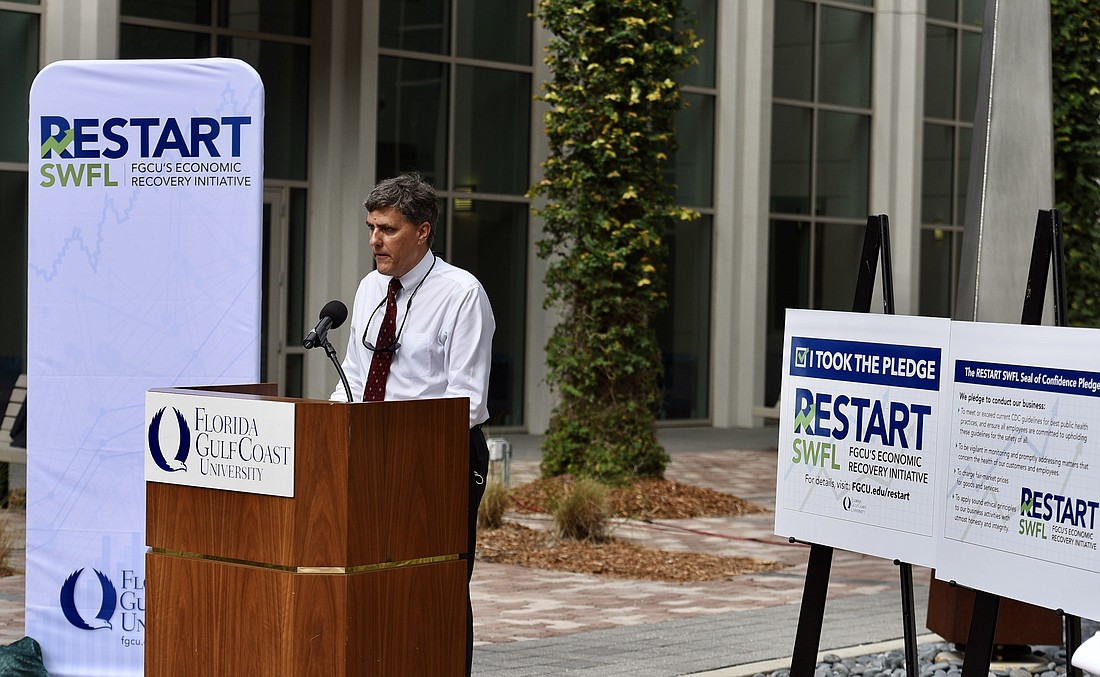- December 13, 2025
-
-
Loading

Loading

Out of all the coronavirus business-related data points, one stings Chris Westley the most when he considers the challenges companies face in a post-pandemic world. The statistic: At least 40% of businesses forced to close because of a disaster never reopen, according to the Federal Emergency Management Agency.
The dean of Florida Gulf Coast University’s Lutgert College of Business in Fort Myers, Westley doesn’t plan to sit idly by while that ominous nugget comes to fruition. Instead, he’s part of a group of FGCU leaders behind Restart SWFL, an initiative dedicated to helping businesses respond to the impact of COVID-19 on their operations, workforce, vendors and customers. “We want to give consumers a sense of confidence they can enter the marketplace again,” Westley says. “A lot of businesses are doing triage right now: ‘What can I do first? What do I need to do next?”